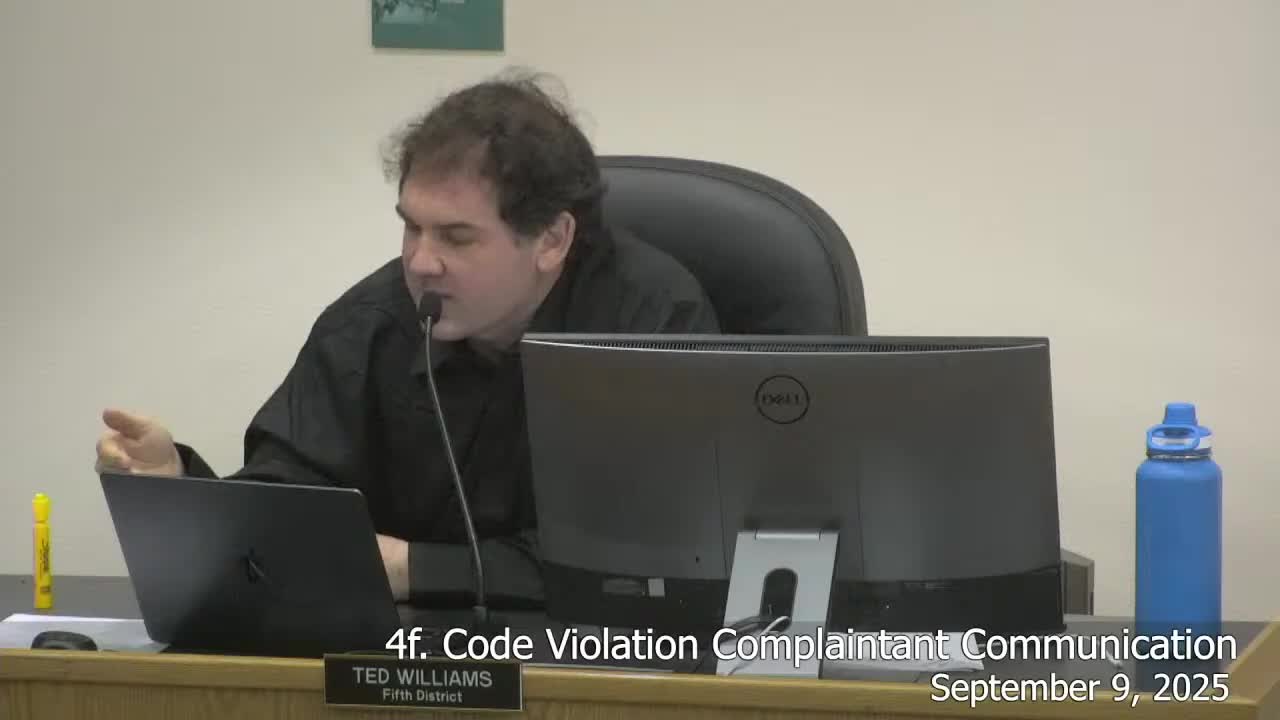Article not found
This article is no longer available. But don't worry—we've gathered other articles that discuss the same topic.
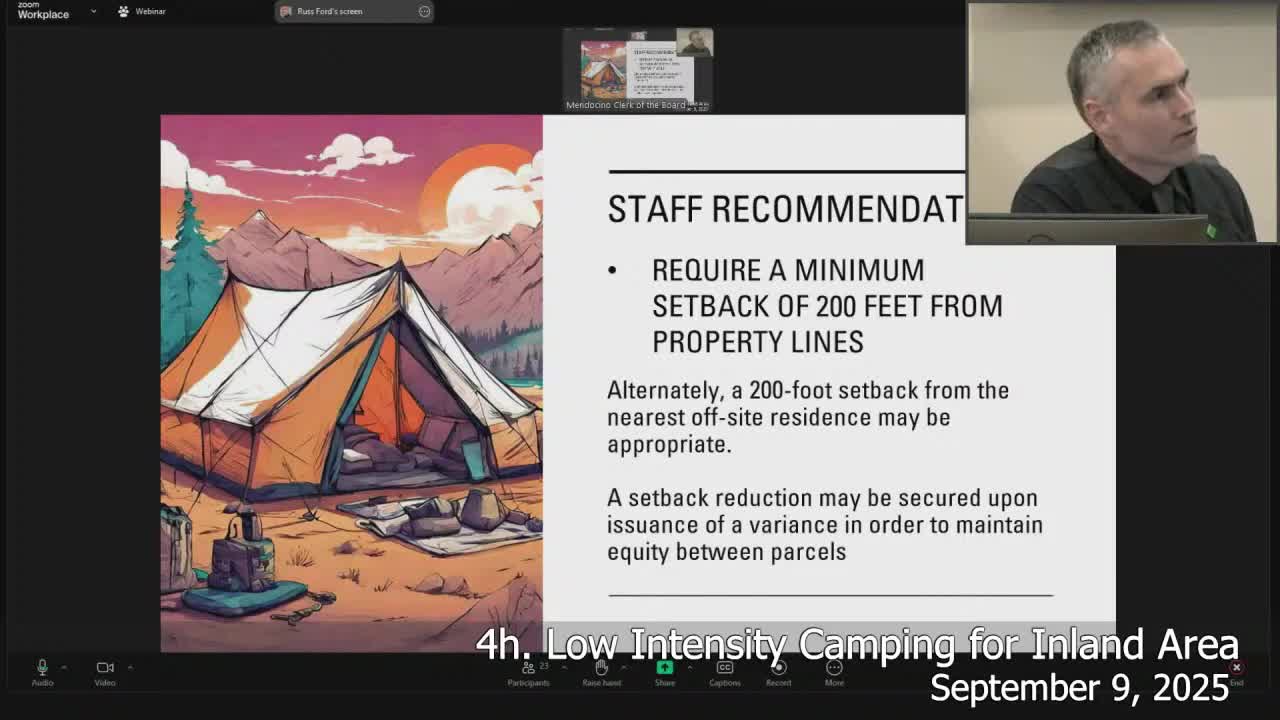
Supervisors approve county response to grand jury review of Planning & Building, direct staff to follow up on fire-code issue with Cal Fire
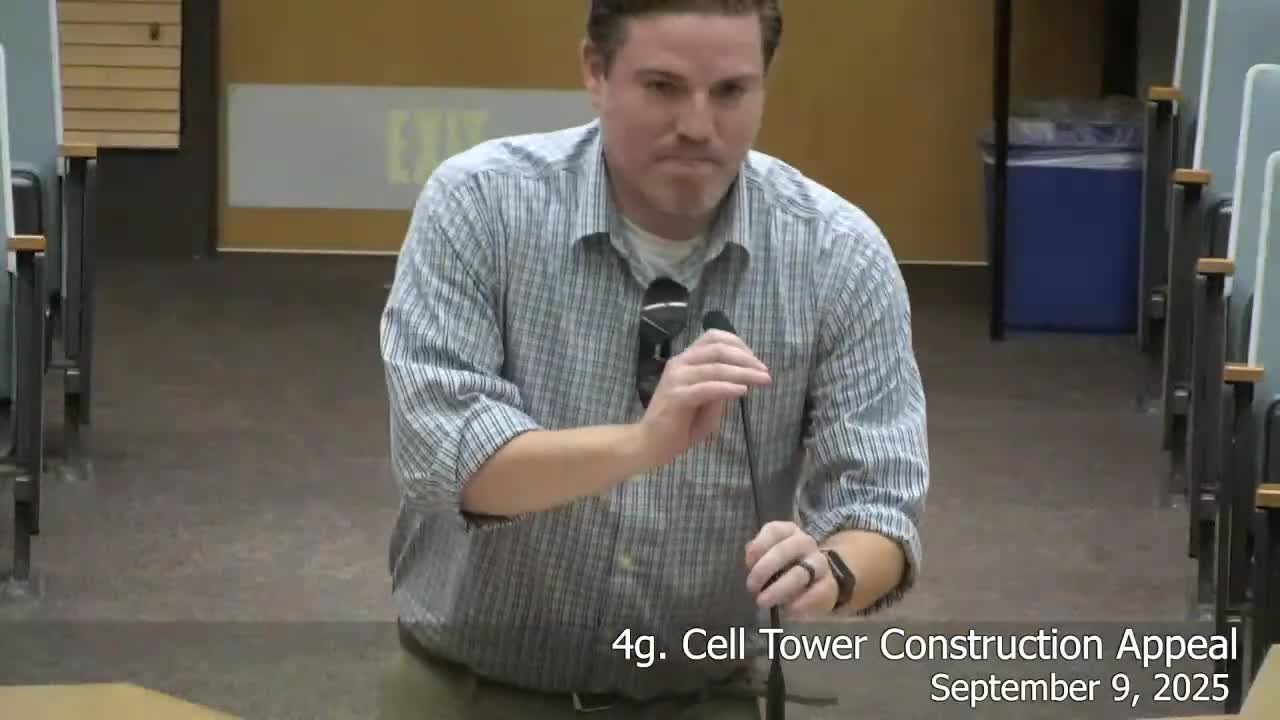
Supervisors grant appeal, remove post-approval condition tied to unrelated property violations for Sherwood Road cell tower
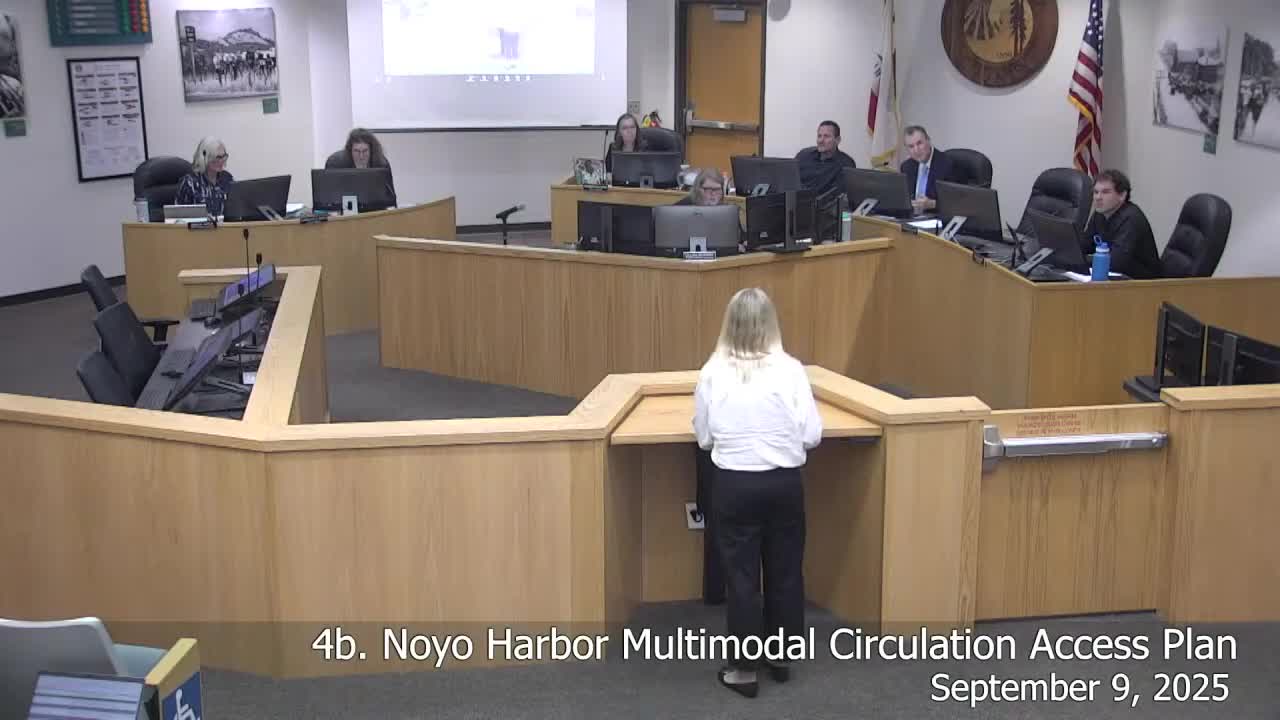
County accepts draft Noyo Harbor multimodal circulation plan; consultants to finalize after stakeholder feedback
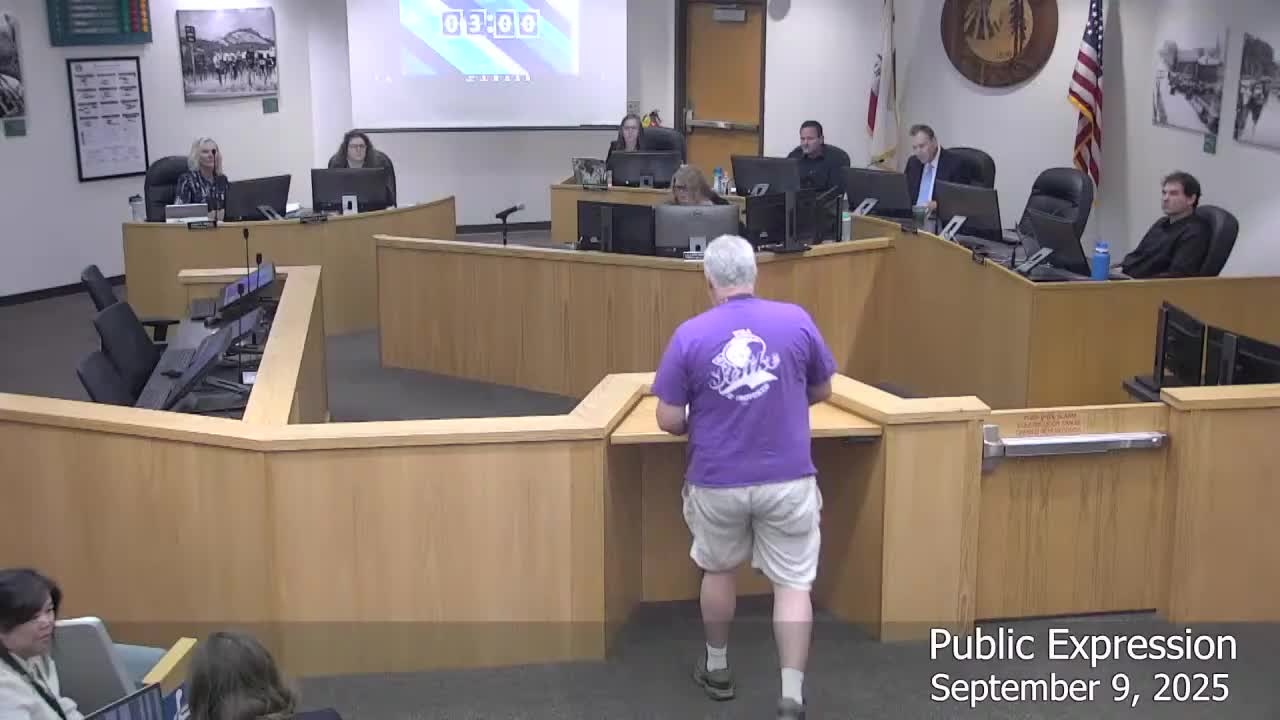
County social workers, child-welfare staff petition supervisors over proposed staffing changes
